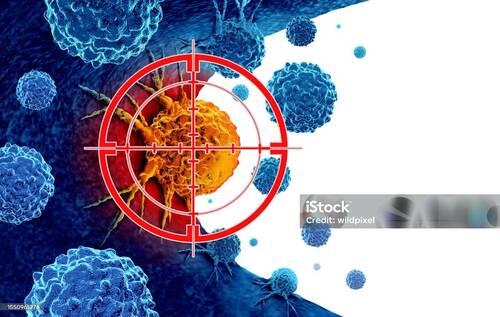
27 Oct Transforming Healthcare with Advanced Screening Techniques

Photo Credit: istock Medical Research Laboratory Meeting of diverse team of scientists discussing innovative biotechnology for advanced medicine
Advanced screening techniques are changing healthcare by making it easier to find and treat diseases earlier. These new technologies are helping doctors and researchers improve the way they diagnose these diseases and create better treatments. A key area where these techniques are making a big impact is in antibody discovery. It helps scientists find important proteins that can be used to fight diseases like cancer and autoimmune disorders.
In this article, we’ll look at how advanced screening techniques are changing healthcare, how they help with antibody discovery, and what the future might hold for these technologies.
What Are Advanced Screening Techniques?
In healthcare, screening techniques are methods used to detect diseases early, often before symptoms appear, allowing for timely treatment. Through continuous advancements in technology, today’s advanced screening tools are more precise, enabling the detection of diseases at the molecular level. This early detection significantly improves patient outcomes. It allows doctors to intervene sooner and select more effective treatment options.
High-throughput screening (HTS) is one of the most impactful advancements in this field. HTS allows researchers to test thousands of biological samples rapidly and efficiently to identify potential therapeutic compounds. This method accelerates the discovery of new drugs and therapies.
For instance, during the COVID-19 pandemic, HTS was used to screen compounds that could inhibit the virus, helping speed up the development of antiviral treatments. HTS is also widely used in cancer research to discover compounds that can target cancer cells or assist in the development of personalized treatments.
Another vital tool is single-cell screening, which enables scientists to examine individual cells to identify rare and unique antibodies. This is especially critical in antibody discovery, where researchers aim to find antibodies that are highly effective against specific diseases. A recent breakthrough example is the development of bispecific antibodies, which are used in cancer immunotherapy.
These bispecific antibodies can simultaneously bind to cancer cells and immune cells, improving the immune system’s ability to target and eliminate tumors. Bispecific antibodies have shown success in treating conditions like acute lymphoblastic leukemia (ALL) and are being explored for use in other cancers.
Why Antibody Discovery is Important
Antibodies are proteins made by the immune system to fight off harmful invaders like viruses and bacteria. Scientists can use these antibodies to create treatments that target specific diseases. Antibody discovery is the process of finding the right antibodies to use for different treatments.
In the past, this process was slow, but with advanced screening techniques, it’s now much faster and more accurate. Monoclonal antibodies, for example, are antibodies that can be made in the lab to target specific proteins on disease-causing cells, like cancer cells. Once they attach to the cells, they help the immune system destroy them.
These targeted therapies are especially useful in treating cancers like breast cancer and lymphoma. Advanced screening tools help scientists find these important antibodies quickly, speeding up the development of life-saving treatments.
Advanced Screening and Precision Medicine
Precision medicine is a new approach to healthcare that focuses on creating treatments tailored to each patient. Instead of using the same treatment for everyone, doctors use detailed information about a person’s genes, environment, and lifestyle to design treatments that are more likely to work for that individual.
Advanced screening techniques are essential in precision medicine. They help doctors find biomarkers, which are molecules that can show if a person has a disease. By identifying these biomarkers, doctors can choose the best treatments for each patient.
In cancer treatment, for instance, screening tools can find specific changes in a tumor’s DNA. This allows doctors to use monoclonal antibodies that target these changes, making the treatment more effective and less harmful to the rest of the body.

Photo Credit: istock Cancer Diagnosis and disease detection or screening as a treatment for malignant cells
The Future of Advanced Screening Techniques
As technology continues to advance, screening techniques will become even more important in healthcare. One exciting area of development is the creation of fully human antibodies, which are derived entirely from human genetic material. High-throughput fully human antibody discovery speeds up the discovery of these antibodies by using innovative technologies like AbDrop™ microdroplets and HUGO-Ab™ transgenic mice. These tools allow scientists to identify fully human antibodies more efficiently, bypassing the need for humanization and improving the accuracy of antibody discovery. This is vital for creating effective treatments for complex diseases such as cancer and autoimmune disorders.
Moreover, artificial intelligence (AI) is being increasingly integrated into screening processes. AI’s ability to quickly analyze vast amounts of data is helping researchers identify patterns and potential treatments much faster than traditional methods. This speeds up the discovery of treatments for diseases like Alzheimer’s, which currently lack effective options. AI’s advanced data processing opens new avenues for research, creating possibilities for breakthroughs that were previously difficult to achieve.
Additionally, single-cell screening continues to advance, giving scientists deeper insights into how individual cells respond to diseases and treatments. This leads to more precise therapies that target diseases at their source, resulting in treatments that are more effective and cause fewer side effects.
In the future, fully human antibodies are expected to play a key role in precision medicine, offering highly targeted, safer treatments for chronic and complex diseases. The combination of advanced screening techniques, AI, and fully human antibodies will continue to transform healthcare, making treatments faster, more precise, and more effective.
Key Points to Remember
- Advanced screening techniques are helping doctors detect diseases earlier and more accurately, leading to better treatment outcomes.
- These techniques are speeding up the antibody discovery process, allowing for faster development of targeted therapies for diseases like cancer and autoimmune disorders.
- The future of healthcare will benefit from innovations like fully human antibodies and the use of artificial intelligence in screening, leading to even more effective treatments.
—————————————
These screening tools are also important in early diagnosis. By detecting diseases like HIV or hepatitis early, doctors can start treatment sooner, giving patients a better chance of recovery.
The information on MedicalResearch.com is provided for educational purposes only, and is in no way intended to diagnose, cure, or treat any medical or other condition.
Some links are sponsored. Products, included compounded prescriptions above, are not warranted or endorsed.
Always seek the advice of your physician or other qualified health and ask your doctor any questions you may have regarding a medical condition. In addition to all other limitations and disclaimers in this agreement, service provider and its third party providers disclaim any liability or loss in connection with the content provided on this website.
Last Updated on October 27, 2024 by Marie Benz MD FAAD
